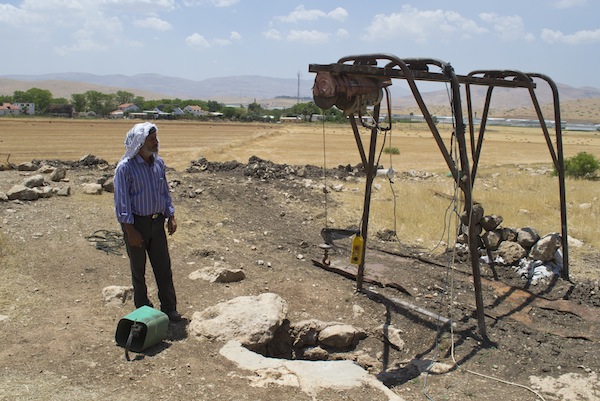Israel’s defense minister orders a halt to cooperation with the European Union-funded humanitarian aid projects benefitting West Bank and Gaza Palestinians.

Israel’s defense minister launched a massive ‘price tag’ attack last week. In response to an EU directive that will help ensure European funding does not benefit Israeli settlements, Moshe Ya’alon ordered a halt to cooperation with European humanitarian efforts benefiting Palestinians in Israeli-controlled areas of the West Bank.
“We are freezing the relationship on everything,” an Israeli official told The Guardian. “We did this as soon as we heard [about the directive]. We can’t act like nothing happened.”
Price tag attacks are generally perpetrated by Israeli settlers against Palestinians and their property in response to Israeli government moves against settlements. In other words, they attack an uninvolved third party in retaliation for legally sanctioned harm done to them.
Ya’alon’s order is no different. For all intents and purposes, it is a price tag attack.
European Union humanitarian projects in Area C tend to focus on water access and reclamation, providing solar electricity infrastructure, waste removal and other basic services to the most vulnerable of Palestinian communities, primarily in the rural south Hebron Hills and Jordan Valley. The decision will also reportedly affect EU training of Palestinian Authority police.
As part of the Israeli Defense Ministry’s new directives, Israel will stop all cooperation, halt issuing new permits for projects and no longer issue documents allowing EU representatives to easily travel through and into the West Bank and Gaza. The new restrictions apply to EU projects but not those of EU member states, Haaretz reported.
Israel, however, has long erected hurdles to EU humanitarian projects benefiting Palestinians. Last year, Israel destroyed 62 EU-funded humanitarian structures and another 110 projects were at risk, a UN-chaired task force of international NGOs reported. All 27 EU foreign ministers condemned the demolition of projects their countries funded.
+972 has learned of other measures taken by Israeli military officials targeting European aid workers themselves while working in Area C, not to mention the ongoing maltreatment of accredited humanitarian workers by Israel’s Interior Ministry when issuing visas.
But Israel is no stranger to collective punishment. The closure of Gaza’s crossings testifies to the regularity with which Israel metes out collective punishment on uninvolved Palestinian civilians in response to acts carried out by specific groups.
“If there is quiet, the processes easing the lives of Gazan residents will continue. And if there is [rocket] fire, then these moves will be slowed and even stopped and, if necessary, even reversed,” National security adviser Yaakov Amidror said earlier this year.
In the West Bank, collective punishment takes the form of restrictions on freedom of movement, curfews on entire villages and night raids following protests, home demolitions of the homes of suspected terrorists and more.
These acts of collective punishment are in response to actions by Palestinians themselves, affecting other uninvolved Palestinians, unlike the latest move by Israel’s defense minister. This week’s ‘price tag’ attack by Moshe Ya’alon punishes a vulnerable Palestinian population in response to a diplomatic move by an uninvolved party, which also happens to be Israel’s largest trade partner.
An EU source in Israel told the Guardian: “We have not received any official communication from the Israeli authorities. Our delegations on the spot are seeking urgent clarifications.”
Related:
Can the EU’s settlement exclusion push the U.S. to follow suit?

